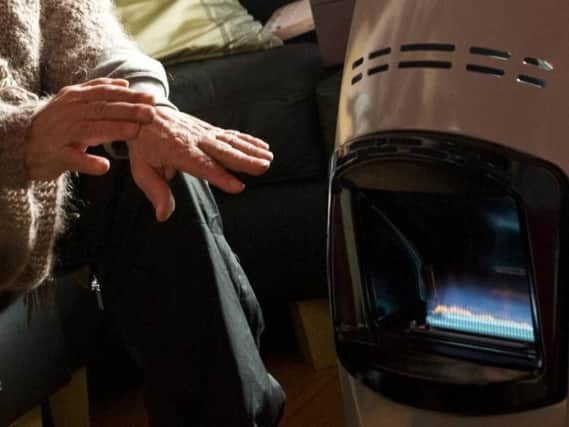Team set up to 'redefine fuel poverty'


The academics from Edinburgh, Heriot Watt and Ulster universities is to consider changes to how fuel poverty is defined.
A self-imposed government deadline to entirely eradicate fuel poverty in Scotland - which is currently deemed to be if more than 10 per cent of household income is spent on “maintaining a satisfactory heating regime” - was missed at the beginning of November. The government said yesterday that a new statutory fuel poverty target will be set as part of the Warm Homes Bill due next year.
Advertisement
Hide AdAdvertisement
Hide AdThe announcement came as the Scottish Government announced a pilot scheme which will offer targeted support to 220 rural households to help them cut their energy bills.
The establishment of the new group, the cost of which the Scottish Government yesterday refused to reveal, comes four months after two separate working groups commissioned by the government published their reports into the impacts of fuel poverty. The experts - from the Scottish Rural Fuel Poverty Task Force and the Scottish Fuel Poverty Strategic Working Group - between them made over 100 recommendations, including that a redefinition of fuel poverty should be considered.
The current definition is criticised for giving scope for people earning high salaries but living in large, fuel-inefficient homes, to be classed as fuel poor.
Professor Christine Liddell, from Ulster University, Prof Glen Bramley and Prof Suzanne Fitzpatrick from Heriot-Watt University and Prof Janette Webb, of the University of Edinburgh, have been tasked with the redefinition and are set to report their findings in the summer.
It is thought that a new definition of fuel poverty could include a cap on high level income households being classed as fuel poor.
Norman Kerr, director of Energy Action Scotland, said: “There are some things that could be done to narrow the definition and make it harder for rich people to be classed as fuel poor.”
Craig Salter, energy spokesman for the Consumer Futures Unit at Citizens Advice Scotland, said: “It is important that any new definition is backed up by robust action on energy prices, increasing incomes, energy efficiency and energy use.”
The £300,000 12-month Homecare pilot will see advisers from Home Energy Scotland visit selected homes in rural areas to see what more can be done to reduce their fuel bills. It will be evaluated before a decision is taken on rolling it out to households nationwide.
Advertisement
Hide AdAdvertisement
Hide AdCommunities secretary Angela Constance said: “I’m...pleased to announce a review of the definition of fuel poverty, which will look at whether changes are needed to help us better target our efforts to eradicate fuel poverty in the forthcoming Warm Homes Bill.”